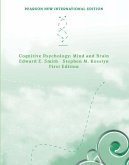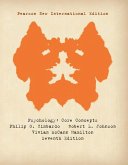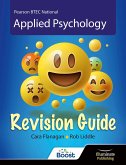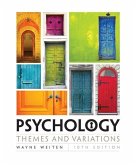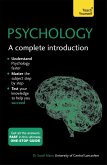The big ideas of educational psychology covered in 10 chapters
The first book of its kind, Essentials of Educational Psychology focuses squarely on the core concepts, principles, and underlying assumptions of the field of educational psychology—the big ideas of ed psych. Because of this focus and the book’s exceptionally direct and clear presentation, Essentials is a 10-chapter book that can truly be covered and understood in a term. It is a book that enables and empowers students to understand the value and essential importance of educational psychology to becoming a qualified and effective teacher.
Features + Benefits
By focusing squarely on the big ideas of educational psychology, Jeanne Ormrod has produced a 10-chapter book that can truly be covered and understood in a term.
The book is structured around fundamental ideas in educational psychology that teachers must understand if they are to be effective educators. This structure can be easily seen in the book’s table of contents, where the reader will find core ideas as headings. You will see, for example, headings like “Cognitive processes influence what is learned” and “Learners create (rather than receive) knowledge” in Chapter 2.
Each chapter now begins with three to six Mega-Ideas–overarching, unifying principles that subsume the chapter’s big ideas and can serve as advance organizers for readers.
10 Chapters cover learning, development, motivation, management, instruction, and assessment.
Theoretical Perspectives tables provide readers with focused information on the psychological theories and theorists who have had a significant influence on educational practice.
Helps readers develop a concrete understanding of how educational psychology applies to themselves and to real children and classrooms.
See for Yourself exercises help readers discover more about themselves as thinkers and learners and also help them come to a deeper and more personal understanding of educational psychology’s core ideas.
Numerous margin questions encourage readers to reflect on what they’re reading. Their purpose is often to encourage readers to connect what they’re reading to their past experiences or to their current beliefs about a topic.
Examples of work created by actual students and teachers. Throughout the book, classroom artifacts from teachers and students help readers connect concepts, principles, and strategies to students’ behavior and classroom practice.
Video examples from elementary, middle, and secondary school classrooms. The book includes many video examples of elementary, middle, and secondary school classrooms in action, as well as one-on-one interviews with children and adolescents.
Classroom Strategies boxes, examples, and bulleted strategies in the text narrative offer concrete suggestions for how teachers should apply particular concepts and principles.
Integrates a discussion of developmental and cultural differences in every chapter.
Cultural Considerations features describe the cultural differences students may have in specific areas, such as behavior, reasoning, and motivation. Topics in these boxes include cultural diversity in worldviews, epistemological beliefs, views and manifestations of intelligence, achieving a sense of self-worth, views about appropriate emotions, frequency of cognitive dissonance, and so on.
Developmental Trends tables highlight developmental differences that teachers are apt to see in grades K-2, 3-5, 6-8, and 9-12. These tables also include concrete examples that illustrate one or more age-typical characteristics, educational implications, and suggested developmentally appropriate strategies.
1. Introduction to Educational Psychology
2. Learning, Cognition, and Memory
3. Learning in Context
4. Complex Cognitive Processes
5. Cognitive Development
6. Motivation and Affect
7. Personal, Social, and Moral Development
8. Instructional Strategies
9. Assessment Strategies
10. Strategies for Creating an Effective Classroom Environment
The big ideas of educational psychology covered in 10 chapters The first book of its kind, Essentials of Educational Psychology focuses squarely on the core concepts, principles, and underlying assumptions of the field of educational psychology?the big ideas of ed psych. Because of this focus and the book's exceptionally direct and clear presentation, Essentials is a 10-chapter book that can truly be covered and understood in a term. It is a book that enables and empowers students to understand the value and essential importance of educational psychology to becoming a qualified and effective teacher.
Hinweis: Dieser Artikel kann nur an eine deutsche Lieferadresse ausgeliefert werden.
The first book of its kind, Essentials of Educational Psychology focuses squarely on the core concepts, principles, and underlying assumptions of the field of educational psychology—the big ideas of ed psych. Because of this focus and the book’s exceptionally direct and clear presentation, Essentials is a 10-chapter book that can truly be covered and understood in a term. It is a book that enables and empowers students to understand the value and essential importance of educational psychology to becoming a qualified and effective teacher.
Features + Benefits
By focusing squarely on the big ideas of educational psychology, Jeanne Ormrod has produced a 10-chapter book that can truly be covered and understood in a term.
The book is structured around fundamental ideas in educational psychology that teachers must understand if they are to be effective educators. This structure can be easily seen in the book’s table of contents, where the reader will find core ideas as headings. You will see, for example, headings like “Cognitive processes influence what is learned” and “Learners create (rather than receive) knowledge” in Chapter 2.
Each chapter now begins with three to six Mega-Ideas–overarching, unifying principles that subsume the chapter’s big ideas and can serve as advance organizers for readers.
10 Chapters cover learning, development, motivation, management, instruction, and assessment.
Theoretical Perspectives tables provide readers with focused information on the psychological theories and theorists who have had a significant influence on educational practice.
Helps readers develop a concrete understanding of how educational psychology applies to themselves and to real children and classrooms.
See for Yourself exercises help readers discover more about themselves as thinkers and learners and also help them come to a deeper and more personal understanding of educational psychology’s core ideas.
Numerous margin questions encourage readers to reflect on what they’re reading. Their purpose is often to encourage readers to connect what they’re reading to their past experiences or to their current beliefs about a topic.
Examples of work created by actual students and teachers. Throughout the book, classroom artifacts from teachers and students help readers connect concepts, principles, and strategies to students’ behavior and classroom practice.
Video examples from elementary, middle, and secondary school classrooms. The book includes many video examples of elementary, middle, and secondary school classrooms in action, as well as one-on-one interviews with children and adolescents.
Classroom Strategies boxes, examples, and bulleted strategies in the text narrative offer concrete suggestions for how teachers should apply particular concepts and principles.
Integrates a discussion of developmental and cultural differences in every chapter.
Cultural Considerations features describe the cultural differences students may have in specific areas, such as behavior, reasoning, and motivation. Topics in these boxes include cultural diversity in worldviews, epistemological beliefs, views and manifestations of intelligence, achieving a sense of self-worth, views about appropriate emotions, frequency of cognitive dissonance, and so on.
Developmental Trends tables highlight developmental differences that teachers are apt to see in grades K-2, 3-5, 6-8, and 9-12. These tables also include concrete examples that illustrate one or more age-typical characteristics, educational implications, and suggested developmentally appropriate strategies.
1. Introduction to Educational Psychology
2. Learning, Cognition, and Memory
3. Learning in Context
4. Complex Cognitive Processes
5. Cognitive Development
6. Motivation and Affect
7. Personal, Social, and Moral Development
8. Instructional Strategies
9. Assessment Strategies
10. Strategies for Creating an Effective Classroom Environment
The big ideas of educational psychology covered in 10 chapters The first book of its kind, Essentials of Educational Psychology focuses squarely on the core concepts, principles, and underlying assumptions of the field of educational psychology?the big ideas of ed psych. Because of this focus and the book's exceptionally direct and clear presentation, Essentials is a 10-chapter book that can truly be covered and understood in a term. It is a book that enables and empowers students to understand the value and essential importance of educational psychology to becoming a qualified and effective teacher.
Hinweis: Dieser Artikel kann nur an eine deutsche Lieferadresse ausgeliefert werden.



